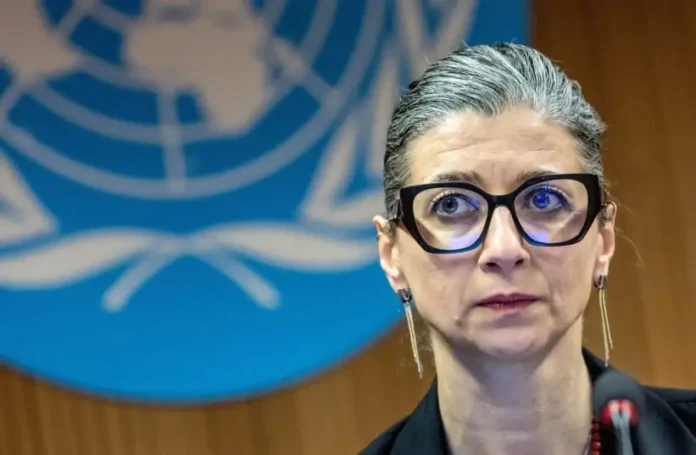In a bold statement, UN Special Rapporteur on Palestine Francesca Albanese has urged the international community to impose sanctions, arms embargoes, and suspend diplomatic relations with Israel.
Her call comes amid escalating tensions in the southern Gazan city of Rafah, where Israeli forces continue their offensive against Hamas.
Albanese took to X, formerly known as Twitter, on Saturday to voice her concerns. She asserted that the only way to halt Israel’s military campaign in Rafah is through international pressure.
“Be sure: Israel will not stop this madness until WE make it stop. Member states must impose sanctions, arms embargo and suspend diplo/political relations with Israel till it ceases its assault,” she wrote.
This appeal follows a contentious ruling by the International Court of Justice (ICJ), which ordered Israel to cease its actions in Rafah.
Despite the ICJ’s verdict, Israel has declared its intention to continue its military operations. An Israeli government spokesperson, quoted by Reuters on Thursday, stated unequivocally, “No power on Earth will stop Israel from protecting its citizens and going after Hamas in Gaza.”
Albanese’s remarks reflect a growing frustration within the international community over the situation in Gaza. She categorically dismissed the Israeli position that its military actions in Rafah comply with the ICJ order, provided measures are taken to minimize civilian harm. “Let’s be clear. As the ICJ orders Israel to stop its offensive in Rafah, Israel intensifies its attacks on it,“ Albanese emphasized in her post.
The ongoing conflict has sparked significant debate regarding the balance between military action and humanitarian concerns. Israel, supported by various Jewish organizations worldwide, maintains that its actions are a legitimate exercise of self-defense. The government contends that the IDF’s operations in Rafah are necessary to dismantle Hamas’s military infrastructure and protect Israeli civilians.
Conversely, critics argue that Israel’s military actions exacerbate the humanitarian crisis in Gaza and violate international law. Albanese, known for her critical stance on Israeli policies, has frequently been at the center of such controversies. Her recent comments have drawn both support and criticism, with some accusing her of antisemitism.
The current escalation in Rafah underscores the broader challenges facing the peace process between Israel and Palestine. The international community remains divided on how best to address the conflict, with diplomatic efforts often stymied by entrenched positions on both sides.
In response to Albanese’s call for sanctions, it remains to be seen how member states will react. Historically, international sanctions and diplomatic pressures have had mixed results in influencing state behavior. The UN’s ability to enforce such measures is often limited by the geopolitical interests of its member states.
As the situation in Rafah continues to evolve, the humanitarian impact on civilians remains a pressing concern. The UN and other international organizations have repeatedly called for measures to protect non-combatants and ensure access to essential services and aid.
Francesca Albanese’s recent statements highlight the urgency and complexity of the Gaza conflict. Whether her call for sanctions will translate into concrete international action is uncertain, but it has undeniably added to the global discourse on how best to achieve peace and security in the region.
This article was created using automation and was thoroughly edited and fact-checked by one of our staff editorial members

